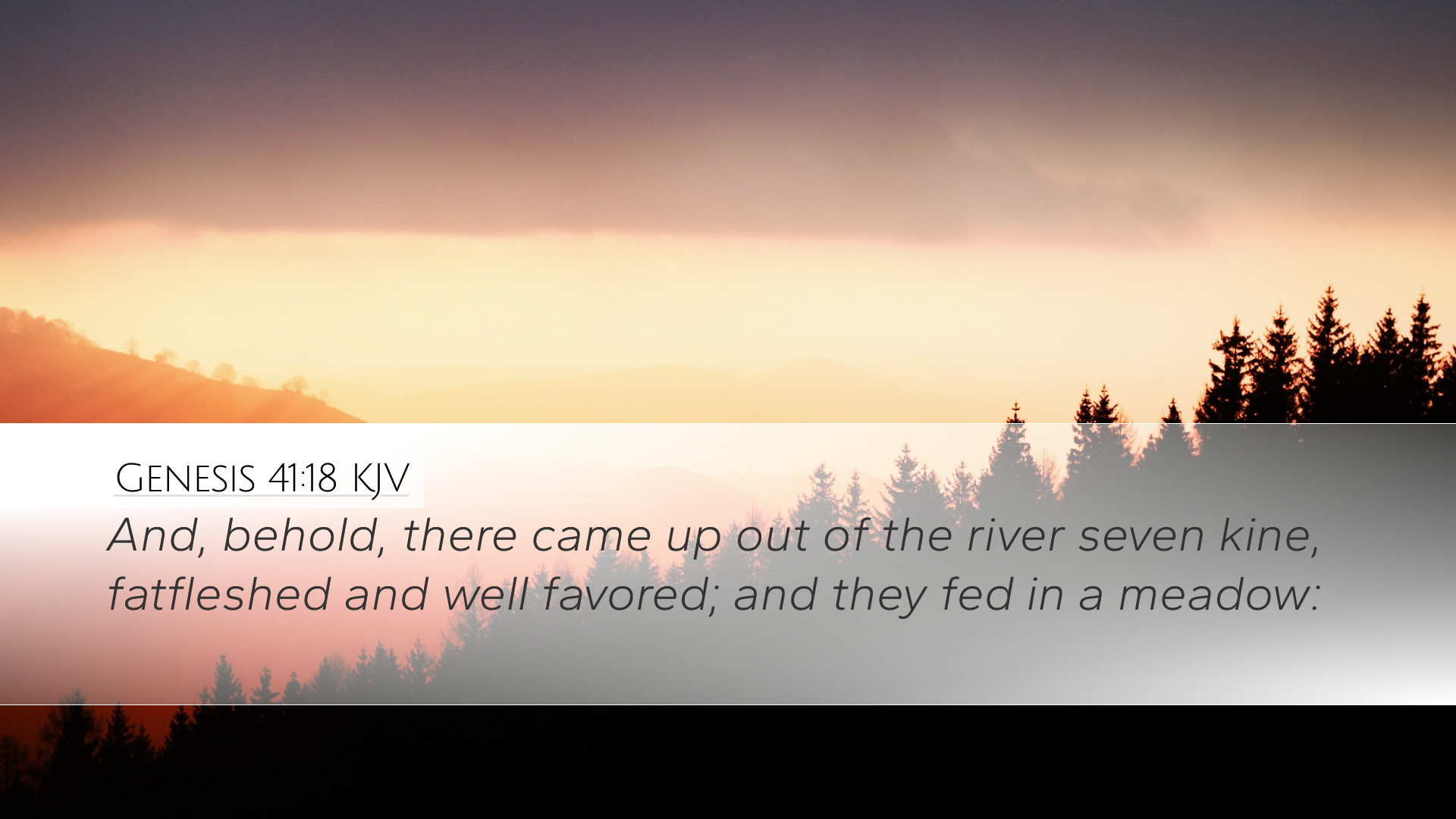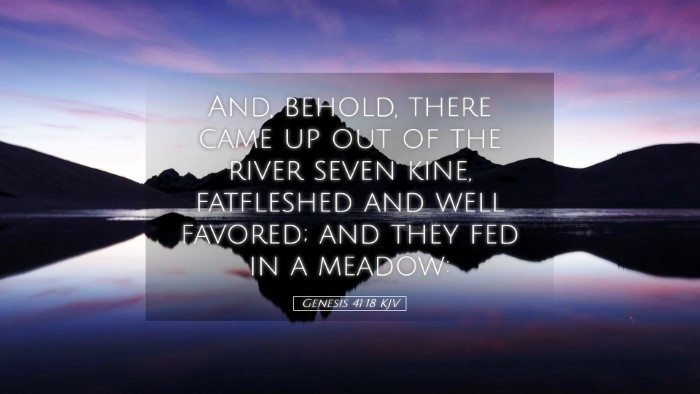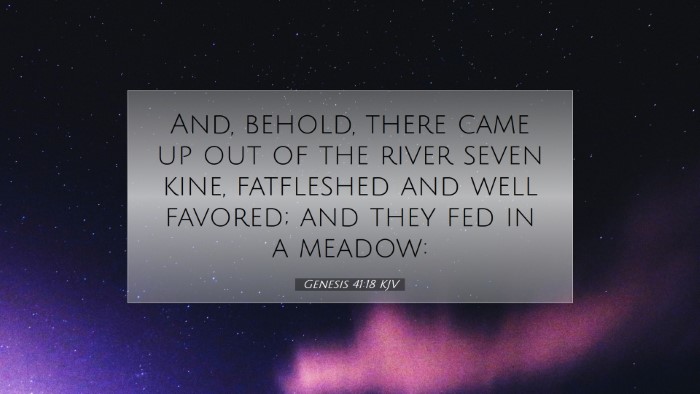Commentary on Genesis 41:18
Text of Genesis 41:18 (KJV): "And, behold, there came up out of the river seven well-favoured kine and fatfleshed; and they fed in a meadow."
Introduction
The account found in Genesis 41 depicts a significant moment in the life of Joseph. This narrative focuses on the prophetic dreams of Pharaoh and their implications for the future of Egypt and Joseph himself. Verse 18 introduces a key aspect of these dreams, where the imagery of the seven well-favoured kine sets the stage for understanding the themes of abundance and judgement in the following passages. Insights from respected biblical commentators shed light on the profound meanings hidden within this verse.
Context of Genesis 41
Genesis 41 narrates Joseph's rise to power following his time in prison. His ability to interpret dreams becomes evident when Pharaoh, troubled by his dreams, seeks someone who can provide clarity. The imagery employed throughout this chapter serves not only to convey Joseph’s prophetic gifts but also to illustrate the forthcoming famine and the need for wise stewardship. A proper understanding of verse 18 requires an awareness of the surrounding context, especially the significance of cattle in Egyptian agrarian culture.
Insights from Matthew Henry
Matthew Henry emphasizes the symbolism of the seven well-favoured kine as a representation of prosperity. He notes that the appearance of these fat cattle signifies abundance in the land, heralding a time of plenty that is soon to be contrasted with the impending famine. Henry comments on the importance of the river, a vital source of life and sustenance in Egypt, suggesting that God is the one who provides these blessings. The passage reflects God's providential care and foresight in preparing Joseph for the challenges ahead.
Insights from Albert Barnes
Albert Barnes provides a detailed analysis of the cultural context surrounding the cattle in Genesis 41:18. He observes that in Egyptian society, cattle were a symbol of wealth and health. Barnes notes that the "well-favoured" description indicates not just physical appearance but also the health of the cattle, which represents God's blessing upon the land. Furthermore, he illustrates that this dreams’ duality foreshadows the drastically different conditions that will follow the years of plenty, thus stressing the necessity for preparation. The imagery here challenges readers to consider their own spiritual preparedness and reliance on God’s provision.
Insights from Adam Clarke
Adam Clarke approaches the verse with a focus on the prophetic nature of the events depicted. He suggests that the lush, healthy kine demonstrate the divine mercy extended to Egypt before the judgment of famine occurs. Clarke notes that the phrase "well-favoured" highlights not only physical health but also divine favor. He elaborates on the significance of the river, drawing a parallel to spiritual themes where great blessings often come from divine sources. Clarke's commentary implores readers to recognize the fleeting nature of abundance and the need for humility and gratitude towards God.
Thematic Significance
The themes represented in Genesis 41:18 extend far beyond the agricultural context of ancient Egypt. The juxtaposition of abundance and famine carries a dual message about the nature of God’s provision and the responsibilities that accompany such blessings. Again, the dreams of Pharaoh reflect God’s sovereignty and His control over the affairs of nations. This theme is echoed throughout the scriptures where God's provision must be met with faithfulness and good stewardship.
Practical Applications
- Preparation and Awareness: The vivid imagery encourages leaders and families to cultivate awareness of their circumstances and the resources at their disposal, preparing spiritually and practically for times of scarcity.
- Divine Providence: Recognizing God's hand in the cycles of life can foster a greater sense of gratitude and reliance on Him for our needs.
- Faithfulness in Abundance: As Joseph is called to manage the resources wisely, contemporary believers are also urged to be vigilant stewards of the blessings they receive.
Conclusion
Genesis 41:18 serves as a cornerstone in the narrative of Joseph while encapsulating deeper theological implications about divine provision and human responsibility. Insights from prominent commentators such as Matthew Henry, Albert Barnes, and Adam Clarke illustrate the richness of this verse and the wisdom it imparts for pastoral care, theological study, and personal reflection. As this narrative unfolds, the faithful are reminded to both rejoice in God’s blessings and prepare for the challenges that may arise, maintaining steadfast trust in His providential care.


